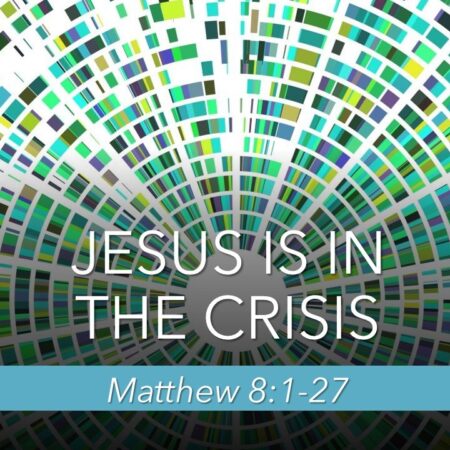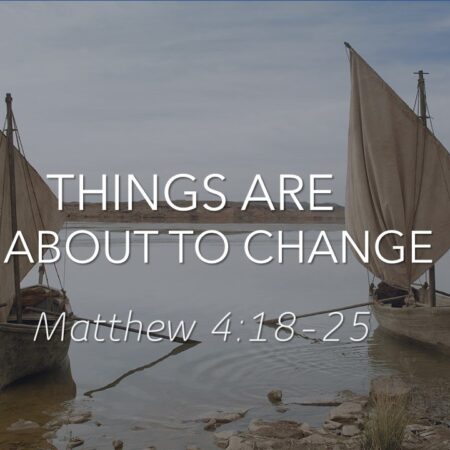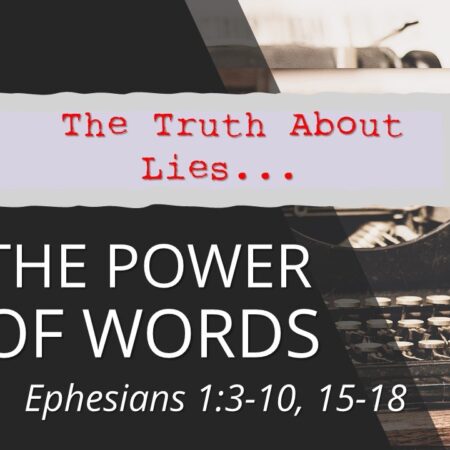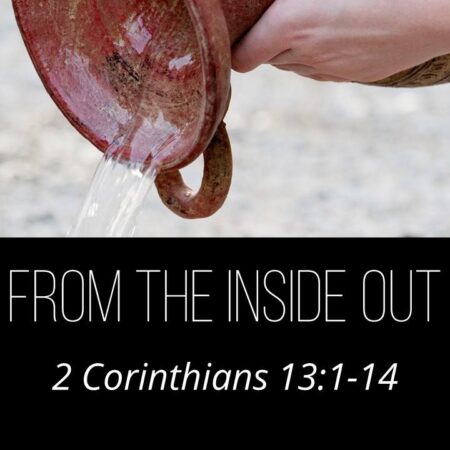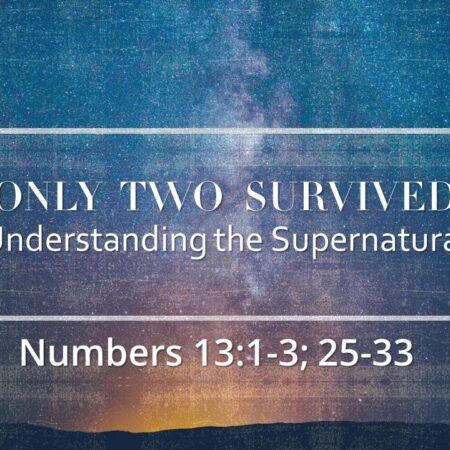The Lebanese Christian author Charles Malik in his book “CHRIST AND CRISIS” writes:
“Are you perplexed? Do you “feel” the crisis? Do you “feel” something profoundly wrong, both in your life and in the affairs of the world? Do you as it were “hold your heart in your hand”, fearing that at almost the next moment something terrible is going to break out -both in you and the world? Have you reached the state where you simply do not quite trust the processes of the world (including nature, science, economics, politics, and even the best good will), suspecting that there is in them a flaw somewhere, a false note, an immanent principle of darkness, destruction, and death?
He wrote that book in 2015!
Mark Sayers in his book “Reappearing Church” writes:
“Our cultural crises show us the consequences of what happens when we try and take over the controls of the world.
To the contrite heart, the humble, the meek in spirit, God’s presence is received as waves of love. Yet for the proud, the rebellious, the autonomous, the individuals and systems that wish to continue Adam and Eve’s rebellion to reanimate the project of Babylon, to reach for progress without presence – for such people and systems, those same waves of love that are God’s presence are experienced as judgment.”
In 1966 Lesslie Newbigin published a book titled: “Honest Religion for Secular Man”
“After Christ had humiliated the power and principalities upon the cross, the sacred order of the world was exposed. It was either God’s unmediated presence or nothing.
As a Christian I see this process of secularization as an extension of the prophetic attack, in the name of the living God, upon all structures of thought, patterns of society, idols whether mental or metal, which claim sacred authority”.
Sermons on Christian Life (Page 8)
JESUS CAME TO PROCLAIM THE GOSPEL OF THE KINGDOM.
Chuck Swindoll in his commentary on this text writes:
“For many years, faulty information had been taught by the religious aristocracy. With unquestioned authority, these religious leaders twisted the meaning of Holy Scripture, offered interpretations that were simply wrong, and demanded applications that were frankly impossible. Not content to let God’s Word speak for itself, they added to the commandments of God and required that everyone obey their additions without hesitation.
When Jesus sat down and delivered His illustrious Sermon on the Mount, jaws must have dropped as His audience heard an entirely different interpretation, delivered in an entirely different mode of communication.”
Dr. Michael Heiser in his book “Supernatural” writes:
“Though Eden was lost, God intends that it be restored. Ultimately, his rule – his kingdom – will return in its full scope when Jesus comes back and God creates a new heaven and earth (one that, in Revelation 21 and 22 looks a lot like Eden.)
In the meantime, we can spread the truth of God and the gospel of Jesus everywhere. We can also represent God to everyone we meet and in every place. We are God’s agents to restore Eden in the here and now, looking forward to the day when Jesus brings that plan to a climax.”
John Stott says it this way in his commentary on Matthew:
“Christian righteousness is greater than pharisaic righteousness because it is deeper, being a righteousness of the heart.
The righteousness which is pleasing to him is an inward righteousness of MIND AND MOTIVE.”
Today we gather at home and are encouraged by the Word of God. Ephesians 6:10-20 Philippians 4:19-20
Then, Jesus makes these remarkable statements:
• You are the salt of the earth, but if salt has lost its taste, how shall its saltiness be restored? It is no longer good for anything except to be thrown out and trampled under people’s feet.
• You are the light of the world. A city set on a hill cannot be hidden. Nor do people light a lamp and put it under a basket but on a stand, and it gives light to all in the house.
• In the same way, LET YOUR LIGHT SHINE BEFORE OTHERS, so that they may see your good works and give glory to your Father who is in heaven.
Remember, Jesus spoke these words to a crowd that has lost hope. It is easy to lose hope when things don’t look good and uncertainty and fear is dominating our very lives.
Mark Sayers in his book “The Disappearing Church” has a chapter titled:
Creative Minorities: Going Deep
“The huge tree wins the race by doing something counterintuitive. While the others fight for space, air, and light, it goes underground. While the others head upwards pushing through the surface, it goes deep. While the others pursue, visibility at the expense of stability, the tree remains underground, hidden, building powerful roots. The deep underground foundation grown by the tree ensure that it is connected to deep and unseen sources of water, nutrients, and life. Once these are secured, growth can then happen.
The tree is willing to lose the initial battles in order to win the war.”
“In our culture, which corrodes and seduces us, which erodes commitments, faith, and covenant, we need to be like the tree. The response to a culture built on superficiality, which reduces the world to a shallow secularity, is depth. We need sources of life and sustenance not found in the adulation or respect of the public. In our culture which rips at roots, which tears at foundations, we need depth, we need roots, and we need foundations.”
Richard Foster once said:
“The desperate need today is not for a greater number of intelligent people, or gifted people, but for deep people.”
This account shows everyone is living the same life on Instagram by Cara Curtis —
“When scrolling through your Instagram feed, do you ever feel like you’re getting déjà vu? This is probably because people seem to be living the same life on Instagram.
Whether it’s a perfectly shot piece of avocado toast alongside an artistic looking latte or a breathtaking image of someone jumping from a waterfall, it’s been done before. A million times.
Long before over-sharing online was a normal thing to do, humans have always been attracted to tourist destinations to capture the perfect photograph.
I think we’re all guilty of it to some extent, but now, instead of taking home a gift shop souvenir and relaying your trip to your close friends, people post every detail of their lives online to hundreds of followers who they may not necessarily even know.
Because of this urge to document our lives in real time, originality is becoming a thing of the past and a new-age of copycatting is creeping up on us.”
Before we go to our text, let me read from a chapter titled “the Instagram Life”
“Every society has a way of transmitting its values to the young. Some societies do it through religious festivals or military parades. One of the ways we do it is through a secular sermon called the commencement address……Many young people are graduating into limbo. Floating and plagued by uncertainty, they want to know what specifically they should do with their lives. So, we hand them
• THE GREAT EMPTY BOX OF FREEDOM.
The purpose of life is to be free. Freedom leads to happiness! We’re not going to impose anything on you or tell you what to do. We give you your liberated self to explore. Enjoy your freedom!
The students in the audience put down the empty box because they are drowning in freedom. What they’re looking for is DIRECTION. What is freedom for? How do I know which path is my path?
So we hand them another big box of nothing –
• THE BIG BOX OF POSSIBILITY!
Your future is limitless! You can do anything you set your mind to! The journey is the destination! Take risks! Be audacious! Dream big! But this mantra doesn’t help, either. If you don’t know what your life is for, how does it help to be told that your future is limitless? That just ups the pressure. So they put down that empty box. They are looking for a SOURCE OF WISDOM. Where can I find the answers to my big questions.
So, we hand them
• THE EMPTY BOX OF AUTHENTICITY.
Look inside yourself! Find your true inner passion. You are amazing! Awaken the giant within! Live according to your own true way! You do you!
This is useless too. The “you” we tell them to consult for life’s answers is the very thing that hasn’t yet formed. So they put down that empty box and ask, “What can I devote myself to? What cause will inspire me and give meaning and direction to my life?”
At this point we hand them
• THE EMPTIEST BOX OF ALL – THE BOX OF AUTONOMY.
You are on your own, we tell them. It’s up to you to define your own values, No one else can tell you what’s right or wrong for you. Your truth is to be found in your own way through your own story that you tell about yourself. Do what you love!
You will notice that our answers take all the difficulties of living in your twenties and make them worse. The graduates are in limbo, and we give them uncertainty. They want to know why they should do this as opposed to that. And we have nothing to say except. Figure it out yourself based on no criteria outside yourself. They are floundering in a formless desert. Not only over their heads.
David Brooks “The Second Mountain – The quest for a Moral Life”
The author summarizes the big SIM TO NOWHERE with these words:
“The average American has seven jobs over the course of their twenties. A third of recent college graduates are unemployed, underemployed, or making less then $ 30,000 a year at any given moment. Half feel they have no plan for their life.
These are peak years for alcoholism and drug addiction. People in this life stage move every three years. 40% move back in with their parents at least once. They are much less likely to attend religious services or join a political party. People in their odyssey years tend to be dementedly optimistic about the long-term future. 96% of 18-24-olds agree with the statement “I AM VERY SURE THAT SOMEDAY I WILL GET TO WHERE I WANT TO BE IN LIFE.”
But the present is marked by wandering, loneliness, detachment, doubt, underemployment, heartbreaks, and bad bosses, while their parents go slowly insane.”
You still don’t believe it; let me give you one more example written by the same author:
“When enough people are going through this phase at once, you end up with a society in which everything is flux. You end up with what the Polish philosopher Zygmunt Bauman calls “liquid modernity.” In the age of the smartphone, the friction costs involved in making or braking any transaction or relationship approach zero. The Internet is commanding you to click on and sample one thing after another. Living online often means living in a state of diversion. When you’re living in diversion you’re not actually deeply interested in things; you’re just bored at a more frenetic pace. Online life is saturated with decommitment devices. If you can’t focus your attention for thirty seconds, how on earth are you going to commit for life?
Such is life in the dizziness of freedom. Nobody quite knows where they stand with one another. Everybody is pretty sure that other people are doing life better. Comparison is the robber of joy.”
“You know that at some point you should sit down and find some overall direction for life. But the mind wants to wander from the meaty big questions, which are completely daunting and unanswerable, to the diverting candy right on your phone – the tiny dopamine lift.”
All of this points in one direction; INTO THE DITCH. Political freedom is great. But personal, social, and emotional freedom – when it becomes an ultimate end – absolutely sucks. It leads to a random, busy life with no discernible direction, no firm foundation, and in which, as Marx put it, all that’s solid melts to air. It turns out that freedom isn’t an ocean you want to spend your life in. Freedom is a river you want to get across so you can plant yourself on the other side – and fully commit to something.”
Dallas Willard in his book “Divine Conspiracy” writes:
“Perhaps many people will find that they are already humble. Just be humble, they say. But such a way of reading the beatitudes also gives various other kinds of people automatic access to the kingdom of heaven in terms nicely suited to them – especially if they have a distant God and not a present King. If they are not in a position to be humble, they perhaps can mange to mourn, or be meek, or become persecuted, and then one of the other Beatitudes will, on the interpretation in question, take over to secure their blessedness.
Dallas Willard in “The Divine Conspiracy”
Bar-Code Faith
Think of the bar codes now used on goods in most stores. The scanner responds only to the bar code. It makes no difference what is in the bottle or package that bears it, or whether the sticker is on the ‘right’ one or not. The calculator responds through its electronic eye to the bar code and totally disregards everything else. If the ice cream sticker is on the dog food, the dog food is ice cream, so far as the scanner knows or cares.
On a recent radio program a prominent minister spent fifteen minutes enforcing the point that ‘justification’, the forgiveness of sins, involves no change at all in the heart of personality of the one forgiven. It is, he insisted, something entirely external to you, located wholly in God himself.
His intent was to emphasize the familiar Protestant point that salvation is by God’s grace only and is totally independent of what we may do. But what he in fact said was that being a Christian has nothing to do with the kind of person you are. The implications of this teaching are stunning.
The theology of Christian trinkets says there is something about the Christian that works like the bar code. Some rituals, some belief, or some association with a group affects God the way the bar code affects the scanner. Perhaps there has occurred a moment of mental assent to a creed, or an association entered into with a church. God ‘scans’ it, and forgiveness floods forth. An appropriate amount of righteousness is shifted from Christ’s account to our account in the bank of heaven, and all our debts are paid. We are, accordingly, ‘saved’. Our guilt is erased. How could we not be Christians?
For some Christian groups the ‘account’ has to be appropriately serviced to keep the debts paid up, because we really are not perfect. For others – some strong Calvinist groups – every debt past, present and future is paid for at the initial scan. But the essential thing in either case is the forgiveness of sins. And the pay-off for having faith and being ‘scanned’ comes at death and after. Life now being lived has no necessary connection with being a Christian as long as the ‘bar code’ does its job.
R.T. France in his commentary gives us the answer:
“These large “crowds” are said to “follow” Jesus, the same term which in verses 20 and 22 denoted the first disciples’ total change of lifestyle….
A radical commitment to accompany Jesus.
Yet as the narrative progresses, we shall find only a few who are Jesus’ constant and committed companions, while a less easily defined “crowd” comes and goes. This wider group represents a pool of possible “full-time” recruits, but generally their “following” seems to be more sporadic and temporary.
The verb “follow” alone is not therefore a sufficient indication of full-scale discipleship. Mark 3:7-8 is perhaps more exact in describing this interprovincial crowd as simply “coming to” Jesus.”
Michael Heiser in “Supernatural” writes:
“The members of God’s family have a mission: to be God’s agents in restoring his good rule on earth and expanding the membership of his family. We are God’s means to propel the great reversal begun in Acts 2, the birth of the church, the body of Christ, until the time when the Lord returns.
As evil had spread like a contagion through humanity after the failure of the first Eden, so the gospel spreads like an antidote through the same infected host. We are CARRIERS of the truth about the God of gods, his love for all nations, and his unchanging desire to dwell with his family in the earthly home he has wanted since its creation. Eden will live again.
Everything we do and say matters, though we may never know why or how. But our job isn’t to see – it’s to do. Walking by faith isn’t passive – its purposeful.”
There is more than one reason for this state of affairs. But mostly it comes down to not knowing how to participate with God in ways that allow truth to alter our very way of PERCEIVING AND UNDERSTANDING OUR OWN LIFE.
“It costs a man just as much or even more to go to hell than to come to heaven. Narrow, exceedingly narrow is the way to perdition!” Soren Kierkegaard
“To depart from righteousness is to choose a life of crushing burdens, failures, and disappointments, a life caught in the toils of endless problems that are never resolved. Here is the source of that unending soap opera, that sometimes horror show known as normal human life. The cost of discipleship, though it may take all we have, is small when compared to the lot of those who don’t accept Christ’s invitation to be a part of his company in the way of life.” Dallas Willard, “The Spirit of the Disciplines”
Transformation is about changing our very character – not our environment, not the people around us, not even our behavior – it is about changing who we are from the inside out.
OUR WILL WAS NEVER DESIGNED TO BE ABLE TO FORCE OUR HEART TO CHANGE.
2 Corinthians 13:1-14 2 Corinthians 13:1-4 Paul’s Final Warning: Power of God/Christ crucified 2 Corinthians 13:5 Examine/Test 2 Corinthians 13:8 Truth 2 Corinthians 13:11 Rejoice Aim for Restoration Comfort One…
Herbert Lockyer in his book: All the Miracles in the Bible, says:
“No longer is the Lord the One suffering with and in His people. Here He stands ready to lead them into the Promised Land. Israel is now to look upon Him, not as an ally or an adversary, BUT AS THE COMMANDER-IN-CHIEF.”
Jerry Boykin in his book “The Warrior Soul” made a small list of those flaming darts of the evil one.
• Every temptation to cheat is a bullet.
• Every temptation to shade the truth is a bullet.
• Every temptation to take unearned financial benefit is a bullet.
• Every temptation to develop an illicit immoral relationship is a missile.
• Every temptation to slight your King of Kings is a major missile.
Live and die by your training in the finest warrior’s manual ever written – the Word of God.
“You do not have to sit outside in the dark. If, however, you want to look at the stars, you will find that darkness is required. The stars neither require it nor demand it.” Annie Dillard
“Imagine a world designed so that we experience a mild jolt of pain with every sin and a tickle of pleasure with every act of virtue. Imagine a world in which every errant doctrine attracts a lightning bolt, while every repetition of the Apostle’s Creed stimulates our brains to produce an endorphin of pleasure.” Philip Yancey
In fact, for the Israelites it nearly eliminated the need for faith at all; clear guidance sucked away FREEDOM, making every choice a matter of OBEDIENCE RATHER THAN FAITH.
Power can do everything but the most important thing; it cannot control love. Love does not operate according to the rules of power.
In other words, just as God found it nearly impossible to live among sinful people, the Israelites found it nearly impossible to live WITH A HOLY GOD IN THEIR MIDST.
“In this world there are only two tragedies. One is not getting what one wants, and the other is getting it.” Oscar Wilde

